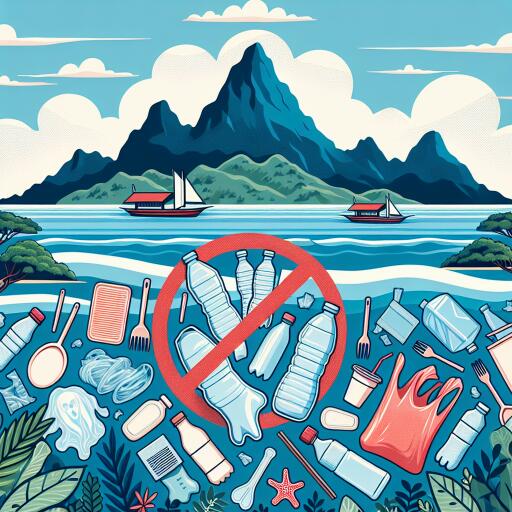
Stepping Forward: The Philippines’ Role in Combatting Plastic Pollution through Single-Use Plastics Ban
In an era where plastic pollution has reached alarming levels globally, the Philippines finds itself at a crucial junction. With a potential to significantly impact the ongoing battle against environmental degradation, the country is poised to take a robust stance by considering the prohibition of single-use plastics. This move aligns with the sentiments of the Filipino populace, who have expressed overwhelming support for such measures.
A survey conducted revealed a striking consensus among Filipinos, with an impressive majority advocating for a global treaty to ban single-use plastics. This public opinion mirrors the urgency of addressing the detrimental effects of plastic on biodiversity, our oceans, and the climate. The advocacy for capping plastic production resonates with the broader aim of preserving our natural world and curbing the warming of the planet.
The Philippines’ struggle with plastic waste is both profound and pervasive. Daily, the consumption of millions of plastic sachets, bags, and disposable diapers contributes to a staggering annual total of plastic rubbish. This “sachet culture” not only exacerbates the littering of our urban and natural landscapes but also poses a grave threat to marine ecosystems and waterways.
Data indicates the Philippines as one of the top contributors to oceanic plastic pollution, a dubious distinction that highlights the urgency for action. Despite the notable recycling efforts and commendable community initiatives aiming at waste reduction, the sheer scale of plastic waste generated outpaces these endeavors. Local measures, though beneficial, barely scratch the surface of the problem, underscoring the need for a comprehensive and nationwide approach to waste management and plastic use.
The push towards a “zero waste” strategy exemplifies a direction that not only emphasizes recycling and composting but also advocates for the drastic reduction in plastic production. This philosophy is akin to turning off a proverbially overflowing tap, addressing the root cause of the plastic crisis rather than its symptoms. After all, with a global recycling rate of a mere 9%, the reliance on recycling alone is insufficient to stem the tide of plastic pollution.
The common argument against banning single-use plastics often revolves around its perceived impact on the economically disadvantaged, suggesting that such a move would deprive them of affordable options for essential goods. However, this standpoint overlooks the feasibility and historical precedent of sustainable alternatives. Reflecting on practices from the past, where reusable containers were the norm for purchasing everyday items, illustrates that a shift away from single-use plastics is both viable and economically inclusive.
Adopting practices that reduce reliance on single-use plastics not only harkens back to more sustainable times but also challenges the current narrative driven by convenience and corporate interests. By emphasizing reusable and refillable options, the Philippines can foster a culture that prioritizes environmental stewardship and sustainability over short-term convenience and profit. This transition would not only benefit the environment but also promote a more equitable and sustainable economic model.
In conclusion, the move towards banning single-use plastics in the Philippines represents a critical step in addressing the profound challenges posed by plastic pollution. By harnessing the collective will of its citizens and advocating for sustainable practices, the country can emerge as a leading force in the global effort to preserve our planet for future generations. The time for action is now, and the Philippines is poised to make a significant contribution to this global cause.





Leave a Reply